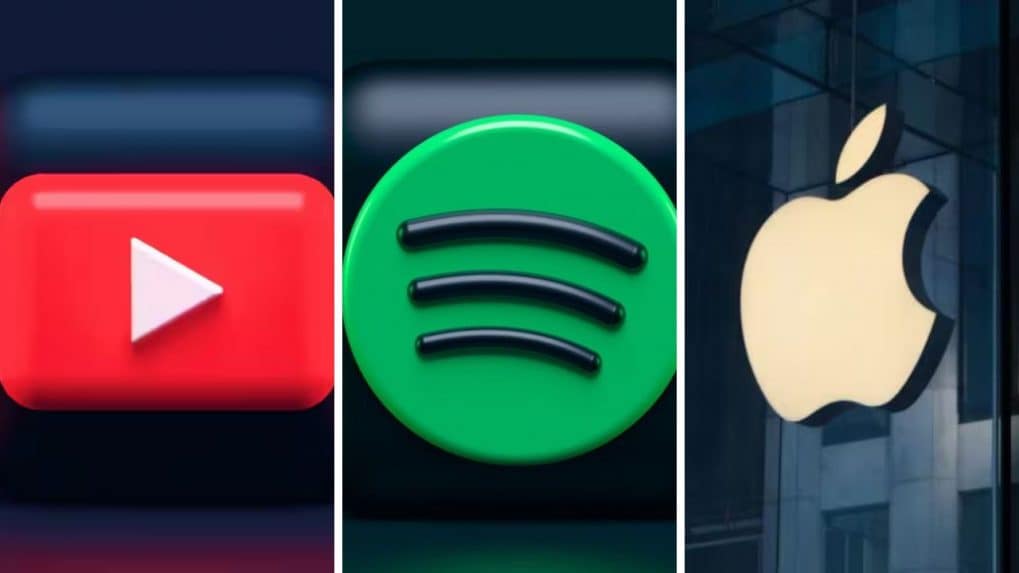How it Works
WPP, Havas, Omnicom: Are advertising’s biggest holdcos recasting agencies as AI Operating Systems?

Six days after India’s Ministry of Information and Broadcasting issued an advisory urging digital platforms to halt content originating from Pakistan, major global services including Spotify, Apple, and YouTube continue to host such material, raising fresh questions about the advisory’s legal weight and enforceability.
The advisory, issued on May 8, has so far not prompted any visible takedowns. Spotify, Apple, and YouTube did not respond to multiple requests for comment.
At the heart of the issue lies a complex legal and regulatory framework that distinguishes between platforms based on how they curate and distribute content. YouTube, for instance, is classified under Indian law as a user-generated content platform and is afforded broad protections under Section 79 of the Information Technology Act and the 2021 Intermediary Guidelines.
"YouTube is clearly an intermediary under the IT Act," said Siddharth Chandrashekhar, an advocate at the Bombay High Court. “It does not initiate transmission, nor select recipients or alter content — aside from algorithmic amplification, which remains a gray area. So long as it complies with court orders or directives under Section 69A, it retains immunity from liability, even for geo-politically sensitive or foreign content.”
Streaming platforms like Spotify and Netflix, however, occupy a different regulatory space. As over-the-top (OTT) content providers, these platforms exercise editorial discretion over what appears on their services and enter into licensing agreements with content creators.
“Their role is more curatorial than intermediary,” Chandrashekhar noted. “If Spotify is hosting Pakistani music through official label uploads, it may have exercised affirmative control, making it potentially liable if it ignores the advisory.”
Legal experts say that Spotify, which features a mix of third-party and self-commissioned content, operates within a hybrid framework, straddling the roles of both intermediary and publisher.
Nikhil Narendran, Partner, TMT, Trilegal, said platforms are only obligated to remove third-party content following a formal court or government order. “If Spotify has commissioned content, it must comply with the advisory. But if it’s merely hosting third-party uploads, liability rests with the uploader, unless a specific takedown notice is issued.”
Even for highly visible cultural exports like Pakistan’s Coke Studio music, legal action would require procedural rigor. “In the absence of a 69A directive, these platforms are not legally compelled to remove such content,” Narendran added.
From a compliance standpoint, the operational model matters. “Spotify’s controlled content library makes it more agile in responding to directives, while YouTube’s vast decentralized ecosystem relies heavily on automation,” said Sonam Chandwani, managing partner at KS Legal & Associates.
She added that while the May 8 advisory may mirror a similar February directive, its enforceability is questionable. “Government action under Section 69A can escalate to content blocking or judicial proceedings. But such moves must pass constitutional muster and adhere to legal due process.”
Experts caution that the broader regulatory trend, including the proposed Broadcasting Services (Regulation) Bill, 2024, could significantly tighten control over digital content. The draft legislation includes penalties up to Rs 2.5 crore and establishes government-appointed content evaluation committees.
While the government has cited national security as a rationale for the advisory, some experts argue for a more calibrated approach.
“Media, including music and film, can certainly be used for propaganda, particularly when linguistic and cultural ties are strong,” said Professor Sandeep Shukla of the Indian Institute of Technology. “But sweeping bans may not be the answer. A more selective, evidence-based mechanism might serve the national interest better.”
“Platforms can deploy geo-fencing to restrict adversarial content,” he added, “rather than discontinuing entire genres or regions of origin.”
Others point to a more foundational concern: the inadequacy of the digital regulatory framework in dealing with cross-border content.
Ananth Vinayaka Padmanabhan, Dean at Vinayaka Mission’s Law School, said, “The IT Act and Rules don’t clearly define mechanisms for dealing with content linked to non-friendly jurisdictions. Should we treat all Pakistani-origin content as hostile? Or only content supportive of adversarial positions?”
He suggested a need for more nuanced definitions and procedures, including criteria for declaring content from specific countries as non-permissible.
Divij Joshi, a lawyer and research fellow at ODI Global, called the directive "vague and overbroad." “Platforms remain within their rights to host Pakistani-origin content unless directed otherwise by a legally valid order.”
While the government may still pursue blocking under Section 69A, critics argue the mechanism lacks transparency. “These are not speaking orders — their reasoning is not made public, leaving room for executive overreach,” Joshi warned.
As the standoff continues, platforms appear to be proceeding with caution, but not capitulation, awaiting clearer legal instructions before altering their content libraries.
“While these advisories may not carry the full weight of law, platforms must recognize that brand trust is built not just on legality, but on cultural sensitivity and public perception,” said a Mumbai-based brand strategy consultant.
“In a polarized environment, appearing indifferent to national sentiment, especially on matters tied to identity and security, can invite backlash that transcends regulatory consequences," the consultant added. A former streaming platform executive echoes the sentiment, adding, "It’s not just about compliance; it’s about demonstrating awareness and empathy, which are increasingly central to brand resilience in global markets.”
From purpose-driven work and narrative-rich brand films to AI-enabled ideas and creator-led collaborations, the awards reflect the full spectrum of modern creativity.
Read MoreThe Storyboard18 Awards for Creativity have unveiled a Grand Jury comprising some of India’s most influential leaders across advertising, business, policy and culture, positioning it among the country’s most prestigious creative award platforms.